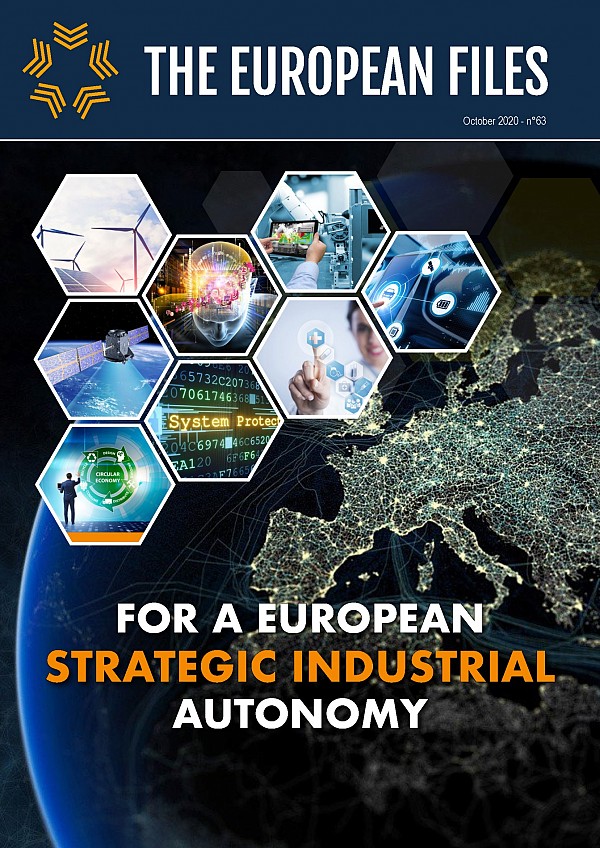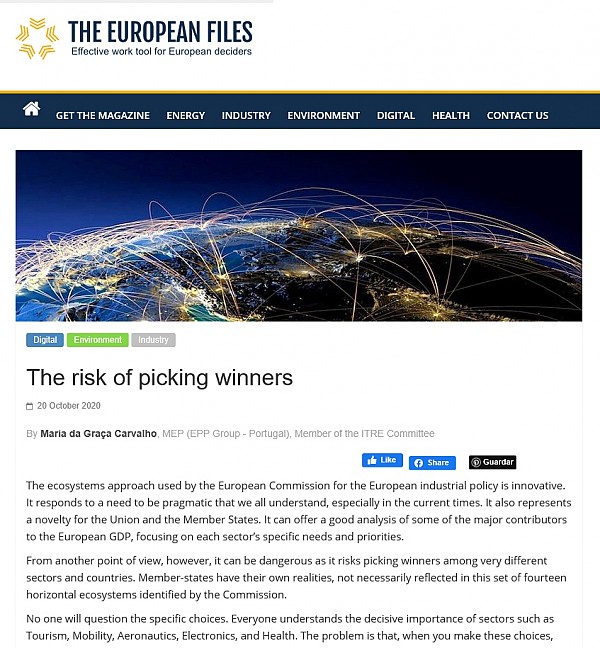Press The risk of picking winners
The ecosystems approach used by the European Commission for the European industrial policy is innovative. It responds to a need to be pragmatic that we all understand, especially in the current times. It also represents a novelty for the Union and the Member States. It can offer a good analysis of some of the major contributors to the European GDP, focusing on each sector’s specific needs and priorities.
From another point of view, however, it can be dangerous as it risks picking winners among very different sectors and countries. Member-states have their own realities, not necessarily reflected in this set of fourteen horizontal ecosystems identified by the Commission.
No one will question the specific choices. Everyone understands the decisive importance of sectors such as Tourism, Mobility, Aeronautics, Electronics, and Health. The problem is that, when you make these choices, you are bound to leave something behind, because you overlook the horizontal ecosystem that is at the base of everything.
The industrial strategy should at least also delineate some ecosystems that apply horizontally to all the vertical value chains, aiming at boosting innovation, reducing the administrative burden and simplifying bureaucracy and rules.
Another horizontal ecosystem should address manufacturing in general, as the digital transformation and the circular economy plans will be of transversal interest. They will invite us to re-think factories and the way we produce all sorts of goods.
Matching short-term objectives with long-term vision
My hope is that the next steps of the European approach to relaunch our economy, build an open strategic autonomy, achieve a more climate-friendly society and identify the industrial priorities will be consistent and coherent. For the time being, I do not see this goal attained.
The difficult balance between the need to act quickly and decisively and the importance of laying the foundations for our future is obvious, not just in the Industrial strategy but also on a larger scale.
Even before the Covid-19 outbreak, the European Union recognized the need to boost its global competitiveness, through policies aiming to increase the leadership in key emerging sectors related to the digital transformation or the development of the green economy.
The recovery plan is a good, even if not perfect, package of proposals that should be a pragmatic help for our economy to regain control on strategic areas and value chains. However, while we appreciate its ambition and the common effort that this package of measures is witnessing, we have noticed a significant unbalance between the sides of the twin transformation that the EU is undertaking. The gap in terms of investments for the green and the digital pillars of the recovery is enormous.
As many other members of the European Parliament, I find it very hard to believe that the resources pledged to the digital transition will be enough to enable the comprehensive transformation we aim to achieve.
The proposals approved by the European Council in July, on the EU’s long-term budget, the Multiannual Financial Framework (MFF), are also failing ambition and vision. The proposed figures are very bleak and unwelcoming. Namely for research and innovation, essential if we want to achieve our main goals.
The European Parliament would like to see a much higher budget dedicated to Horizon Europe.
This lack of vision and ambition is present in the overall strategic goals of the next multi-annual budget. The proposed MFF even leaves aside several areas, including some of the key emerging technologies.
Technologies that should never be overlooked in the large investments needed to build the future for our next generations.
I do not see this as a case of different perspectives. European Commission, European Council, European Parliament, in the end we all agree on what our goals should be. However, this unanimity will mean little if we do not take the necessary steps.


